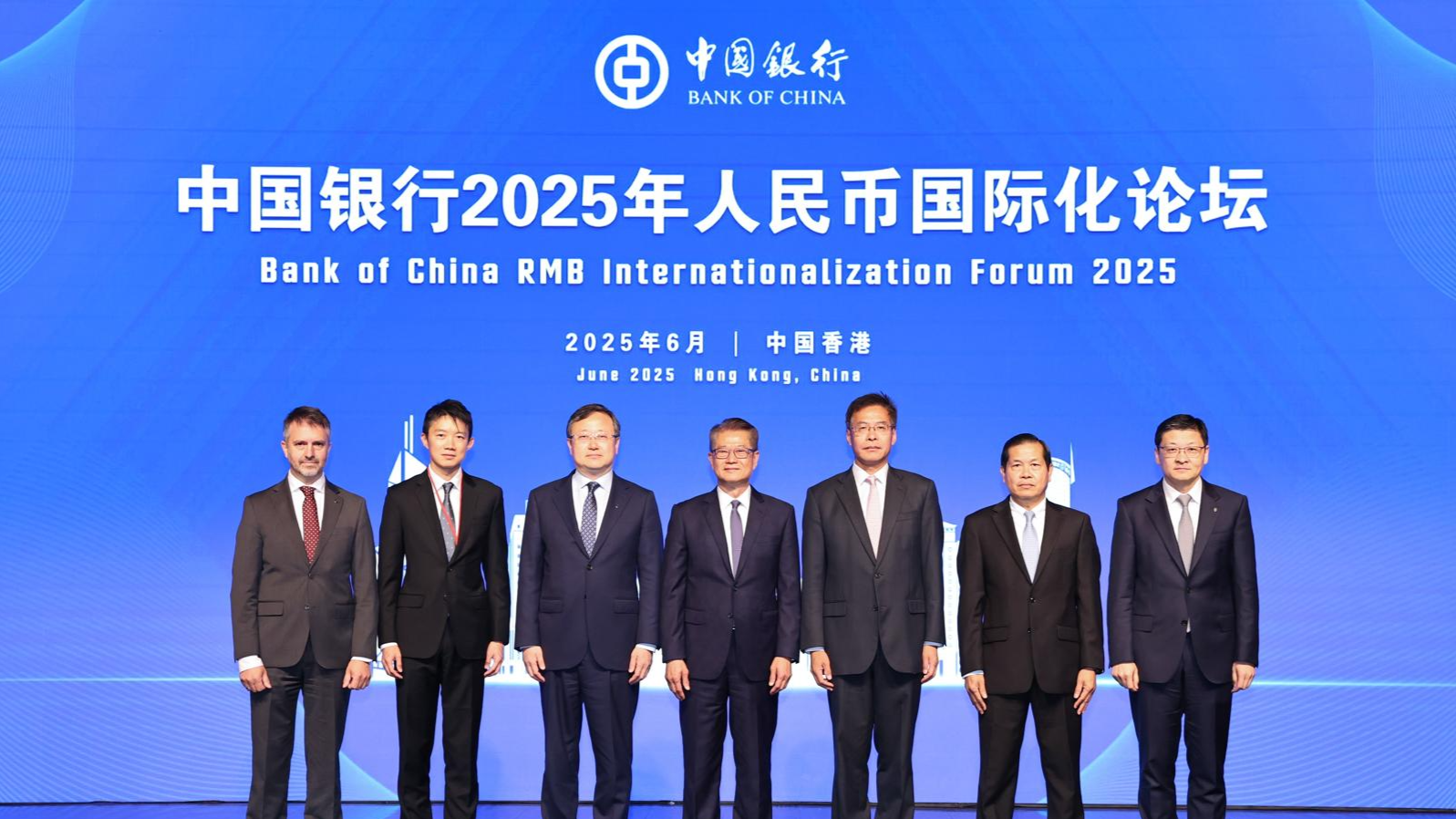
Renminbi internationalization is entering a historic window of opportunity as global trade and monetary systems undergo profound shifts.
Zhang Hui, vice-chairman and president of the Bank of China (BOC), made the remarks in Hong Kong on Friday, at the Bank of China RMB Internationalization Forum.
The expanding overseas footprint of Chinese manufacturing firms and the growing preference among Global South nations for local currency trade settlements have stimulated the demand for cross-border renminbi settlements, Zhang said.
READ MORE: HK has a role to play in yuan’s ongoing internationalization
The currency is emerging as a major force for reshaping the global monetary order, reflecting confidence in China’s high-quality economic growth and “global aspiration for a fair, inclusive and sustainable monetary system”, he added.
In 2024 alone, the bank’s cross-border renminbi clearing volume hit a record 1.3 quadrillion yuan ($181 trillion), Zhang said. Its Hong Kong branch facilitated renminbi clearing exceeding 700 trillion yuan, a year-on-year growth of nearly 50 percent, he said.
Zhang said the bank will continue to support Hong Kong in the city's efforts to solidify its role as a global offshore renminbi hub. He also said the bank will help Hong Kong become a center for renminbi asset pricing, payment and settlements, as well as investment and financing for the offshore renminbi market.
Hong Kong Financial Secretary Paul Chan Mo-po said the special administrative region government, to contribute more to renminbi internationalization, will increase its efforts to enhance offshore renminbi liquidity, upgrade its financial infrastructure, and expand renminbi investment products.
For instance, Hong Kong will issue more renminbi-denominated bonds with varying maturities. “Recent issuances in the city have been oversubscribed, reflecting strong demand for renminbi assets globally and investors’ confidence in Hong Kong’s financial stability,” he said.
Hong Kong has the largest offshore renminbi liquidity pool, and about 80 percent of the world’s offshore renminbi payments are processed here. Chan said that the SAR is both a “testing ground” and “firewall” for the nation’s financial opening-up.
The forum also saw Bank of China launching its 12th “White Paper on RMB Internationalization”, which showed that 78.4 percent of 1,090 non-Chinese mainland businesses surveyed plan to maintain or boost their renminbi usage as a settlement currency.
The appetite for the renminbi is particularly strong in Southeast Asia and in Europe. About 86 percent of polled firms in the Association of Southeast Asian Nations (ASEAN) said they will maintain or expand renminbi settlements, and 75.5 percent of European respondents echoed the sentiment — a 10 percent increase from the inaugural survey in 2022.
Cambodia’s central bank holds over 7 percent of its foreign reserves in renminbi-denominated financial assets, thanks to the currency’s “high liquidity, ease of exchange, and unrestricted cross-border flows”, said Rath Sovannorak, deputy governor of the National Bank of Cambodia.
Amid rising geopolitical and economic uncertainty, economies have learned not to overly rely on a single trade or investment partner, Sovannorak said, adding, “As we are diversified in investment, we are also doing the same for settlement of international trade.
“The renminbi is viewed as the most viable alternative,” he said, but added that the currency is still underutilized and underinvested relative to China’s economic size and global trade presence.
READ MORE: China's central bank to promote cross-border renminbi use
The use of the Chinese currency in Malaysia is also steadily rising, said Safwan Nizar Johari, acting investment consul of Malaysia’s consulate general in Guangzhou, Guangdong province.
Cross-border renminbi transactions between China and Malaysia exceeded 100 billion yuan in the first quarter of the year, an increase of about 30 percent on a yearly basis, he said.
Beyond Asia, Hungary was among the first movers in recognizing the potential of deepening financial ties with China, said Barnabas Virag, deputy governor of the Central Bank of Hungary. “The internationalization of the renminbi has long supported (international) connectivity in many ways.”
Contact the writer at irisli@chinadailyhk.com


